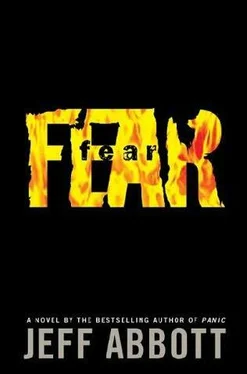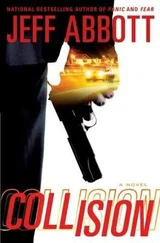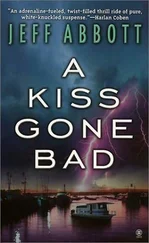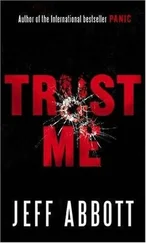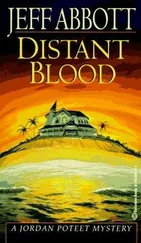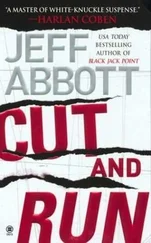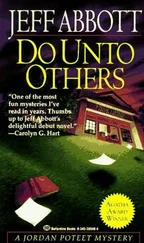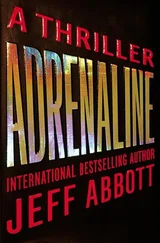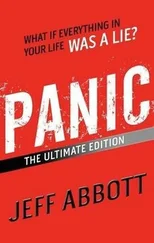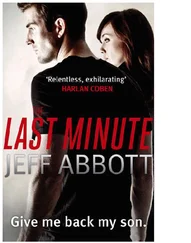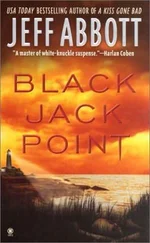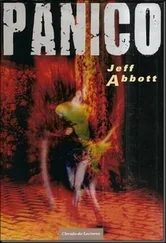Jeff Abbott - Fear
Здесь есть возможность читать онлайн «Jeff Abbott - Fear» весь текст электронной книги совершенно бесплатно (целиком полную версию без сокращений). В некоторых случаях можно слушать аудио, скачать через торрент в формате fb2 и присутствует краткое содержание. Жанр: Триллер, на английском языке. Описание произведения, (предисловие) а так же отзывы посетителей доступны на портале библиотеки ЛибКат.
- Название:Fear
- Автор:
- Жанр:
- Год:неизвестен
- ISBN:нет данных
- Рейтинг книги:4 / 5. Голосов: 1
-
Избранное:Добавить в избранное
- Отзывы:
-
Ваша оценка:
- 80
- 1
- 2
- 3
- 4
- 5
Fear: краткое содержание, описание и аннотация
Предлагаем к чтению аннотацию, описание, краткое содержание или предисловие (зависит от того, что написал сам автор книги «Fear»). Если вы не нашли необходимую информацию о книге — напишите в комментариях, мы постараемся отыскать её.
Fear — читать онлайн бесплатно полную книгу (весь текст) целиком
Ниже представлен текст книги, разбитый по страницам. Система сохранения места последней прочитанной страницы, позволяет с удобством читать онлайн бесплатно книгу «Fear», без необходимости каждый раз заново искать на чём Вы остановились. Поставьте закладку, и сможете в любой момент перейти на страницу, на которой закончили чтение.
Интервал:
Закладка:
He pulled apart the two halves of the capsule – empty.
She’d given him a vial of fake pills. Odd on top of odd.
He lay down on the bed, contemplating the ceiling. The burden of responsibility – of helping her, of making a decision to do rather than just to be – pressed on him. The lack of sleep from the night before, restless and frantic as he considered writing the confession, made his eyes hurt. What if he couldn’t help her, if he was unequal to the task? He touched the confession in his pocket and closed his eyes to try to think.
SEVEN
‘Does it work?’ Groote asked. He nearly held his breath and thought: This is it, Amanda, here’s the miracle that saves you and makes you all right again. He had flown out from Orange County to Albuquerque, then sped the hour north to Santa Fe. His exhaustion from the long night of waiting to kill the accountant evaporated. ‘Does it really work?’
And in the hospital conference room, Doctor Leland Hurley smiled at him and his hopes and his question. Hurley started talking again about lessening the vivid emotional toll of the most horrifying of memories, rattling off a glossary of brain chemicals: epinephrine, propanolol, super beta-blockers, adrenergic receptors. Hurley spoke of giving patients back their normal lives and all Groote could think was, Does it work, does it work, does it work?
Doctor Hurley gestured at the elevator. ‘Let’s go to the top floor.’
The top floor meant Frost. The medicine.
Most of the patients were in their rooms after an early dinner, small but comfortable cubbyholes. At the end of the floor’s main hallway stood an expansive group room where they could talk and gather.
‘Here’s a treat you won’t see every day,’ Hurley said, leading Groote through a door that read VIRTUAL REALITY TREATMENT. QUIET, PLEASE.
The room was dark, separated in half by a glass screen, a jumble of computers loading the walls. A young man, on the other side of the glass, dangled by four elastic cables from the ceiling. A strange helmet covered his eyes and ears; he wore a tight white bodysuit, webbed with wire and tiny gadgets that Groote guessed were recording heartbeat, breathing, and other functions. The patient hung, almost motionless, jerking now and then as he reacted to the scenes playing out of the goggles. On a screen, what appeared to be a computer-animated movie showed a darkened alleyway, wet with rain, three men walking close. One held a chain, the other a blade.
‘What are those scenes?’ Groote asked.
‘We re-create their traumas for them,’ Hurley said with a thin knife of a grin. ‘We do extensive research and interviews to get the details of their individual traumas, then we construct a computer-generated scenario that matches those details. We watch it onscreen – he sees it on the goggles, as though he’s immersed in the scene. You see it’s like a rough cut of a video game, except it’s tailor made to help them face their worst fears. It helps those who aren’t yet willing to talk consistently about their experiences process the memories, so they can discuss them and the medicine, Frost, can weaken the bad memories. This subject was attacked and nearly murdered in a vicious gang mugging in Washington. So he’s experiencing a re-creation of the mugging.’
‘Virtual reality,’ Groote said. ‘But it’s not required for the medicine to work, right?’
‘For us, it serves as camouflage for Frost. Every patient here believes they’re testing the effectiveness of the virtual-reality treatment – they don’t know they’re being dosed with Frost.’
Groote frowned. ‘They don’t know they’re test subjects.’
‘No. We couldn’t let them know. It’s important we not publicize the research, since we’ll be selling it to a pharmaceutical that’ll claim the research for their own.’
The young man jerked against the suspension cables, started to gasp and plead for help as, on the screen, the computer-generated thugs attacked him with chains and knives. A technician sitting on the same side of the glass as Groote and Hurley spoke quietly to the patient through a microphone, reassuring him.
‘I understand your stepdaughter suffered an interesting trauma.’
Interesting? Nice word; this guy was a lab-rat freak. ‘Daughter. I adopted her. She and her mother were driving on a canyon road when another car fired shots at them and drove them off the road. They were pinned in the wreckage. My wife died a few hours later, my daughter lay trapped in the car with her mother’s body for another thirty-six hours before they were found.’ Tightness filled his chest. He was surprised at himself, sharing his family’s horror with a near-stranger – but he knew this was it, clear and present hope for Amanda, the promise of a future for her beyond tiled hallways and sedatives and twenty-four-hour care. ‘The doctors haven’t been able to help her. She tries to hurt herself.’
‘Her brain is dealing with this constant recalling of the traumatic memory. The memory strengthens – and so does the trauma associated with it – the nightmares, the fear, the paranoia,’ Hurley said. ‘In your daughter’s case, everything becomes a reaction to the power of the memory; I suspect she’s afraid to ride in a car, or thinking of her mother sends her into a dissociative state where she flashes back to the trauma itself, or she hurts herself because she believes she should have died with your wife.’
‘Yes,’ Groote said.
Hurley pointed at the man in the virtual-reality chamber. ‘Most of the research about dulling the traumatic memory – we can’t wipe a memory out, after all – has revolved around introducing beta blockers to the patient, which help keep the memory from forming. When we have a frightening experience, our brains activate stress hormones, neurotransmitters, and peripheral beta-receptors – I call the whole mix “fear juice.”’ Hurley smiled. ‘Those chemicals enhance the memory of the traumatic event. Conceivably we can interfere, right away, with the formation of a traumatic memory if we introduce beta-adrenergic antagonists such as a beta blocker called propanolol – so the memory of the trauma never gets the power of the fear juice, to put it simply.’
Groote nodded. ‘I did take chemistry in college, I can handle a technical explanation.’
Hurley smiled as if he didn’t believe him. ‘Of course. A traumatic memory consolidates in regions across our brain – it doesn’t just exist in one set of brain cells that we can zap away. But the moments when the patient recalls the memory, as our boy is doing right now, are also the moments when the memory is at its most chemically fragile. It’s the best opportunity to weaken the memory, make its impact less debilitating. You pull the memory up out of the bed of your brain; it’s like loosening a rose from its bed of soil. If you don’t treat the memory, it takes root again, harder and deeper. But if you chemically weaken the memory after it’s pulled up, you can strip the thorns, so to speak. The problem was, with earlier experiments, you had to introduce the beta blockers very soon after the trauma; there was nothing to help those suffering from long-term trauma. Until Frost. It’s a cocktail – well, “a combination” sounds better – of drugs that combines several approaches: a synthetic, super beta-blocker to undermine the fear juice and powerful new brain enzyme blockers to keep the fearful memories from getting their thorns back.’
On the screens one of the animated attackers delivered a vicious kick to the man’s chest, held a knife to his throat. The patient stayed still in the cables, tilted his head as though a scene only mildly interesting were playing out of the screen.
‘You’re saying Frost could let this guy eventually forget this attack?’
Читать дальшеИнтервал:
Закладка:
Похожие книги на «Fear»
Представляем Вашему вниманию похожие книги на «Fear» списком для выбора. Мы отобрали схожую по названию и смыслу литературу в надежде предоставить читателям больше вариантов отыскать новые, интересные, ещё непрочитанные произведения.
Обсуждение, отзывы о книге «Fear» и просто собственные мнения читателей. Оставьте ваши комментарии, напишите, что Вы думаете о произведении, его смысле или главных героях. Укажите что конкретно понравилось, а что нет, и почему Вы так считаете.
